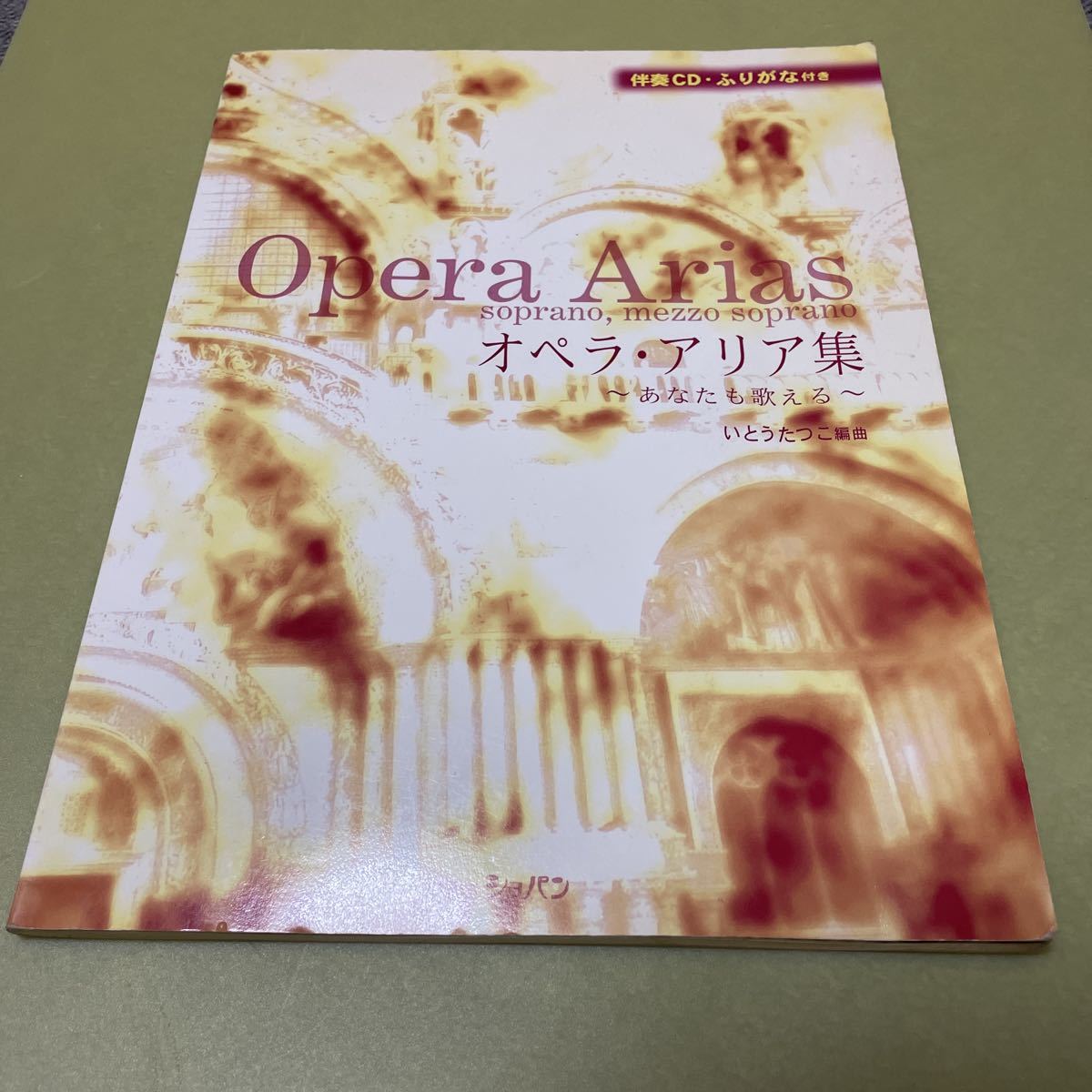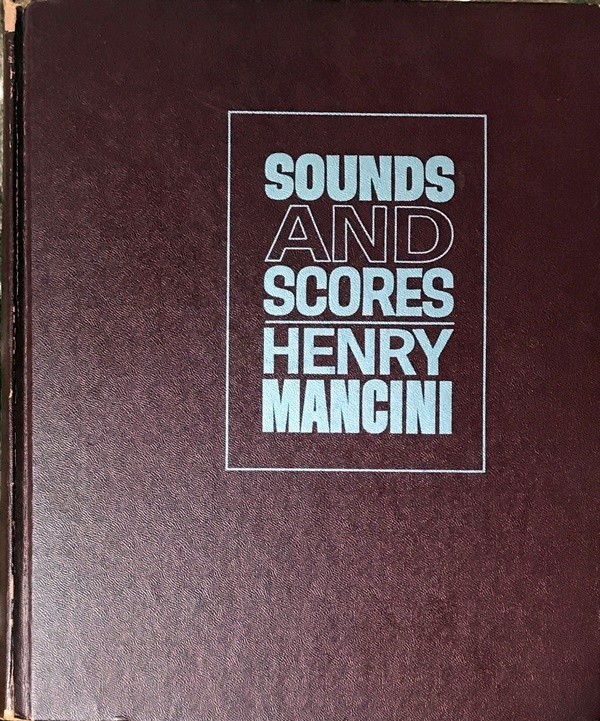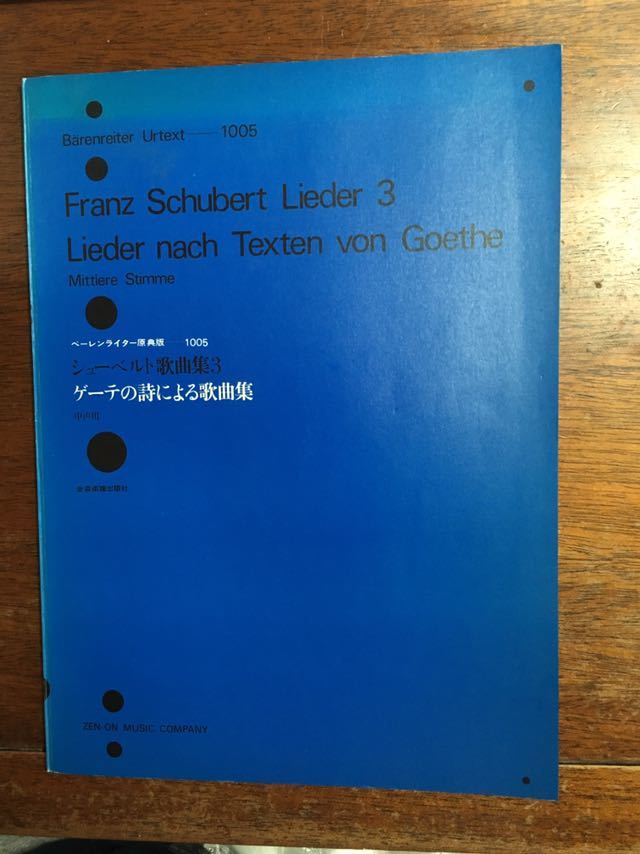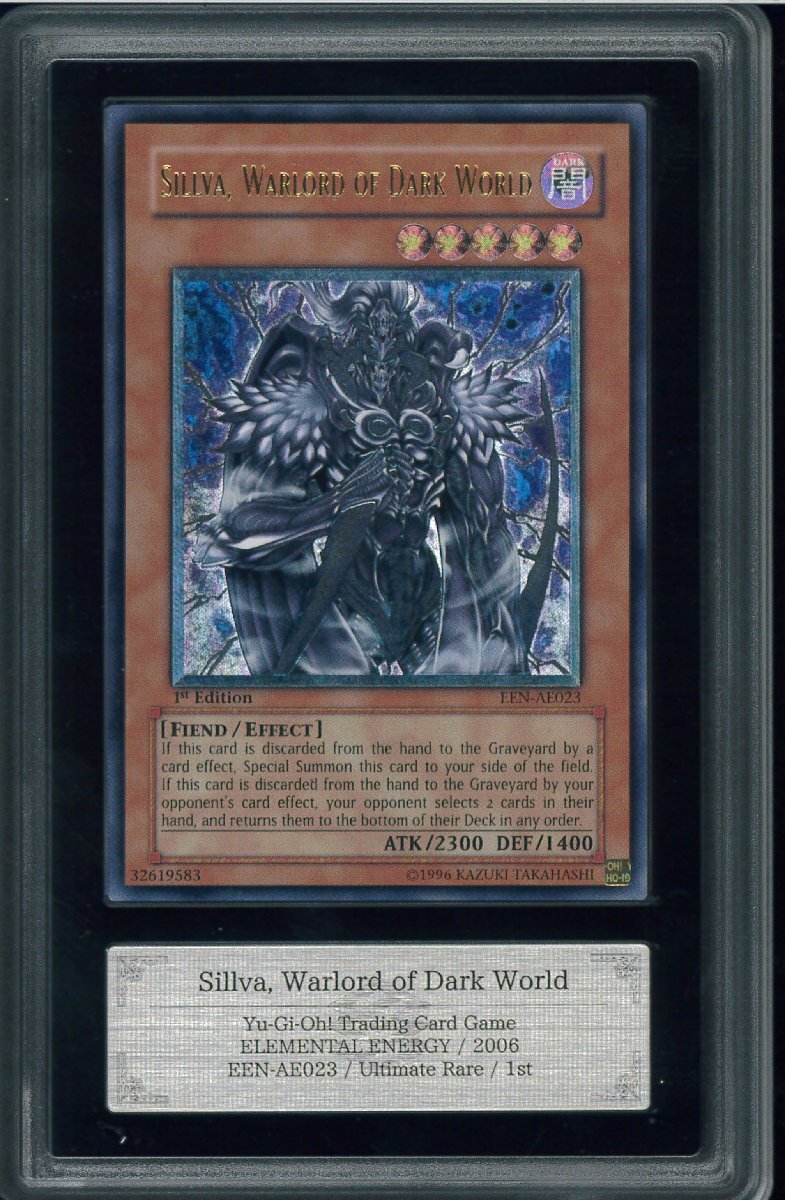
新入荷
再入荷
最安 洋書楽譜ヴォーカルスコアピアノ伴奏ドリーブ歌劇オペララクメ全曲全三幕英語フランス語鐘の歌花の二重唱他声楽 Lakme Operas Vocal Score その他
 タイムセール
タイムセール
終了まで
00
00
00
999円以上お買上げで送料無料(※)
999円以上お買上げで代引き手数料無料
999円以上お買上げで代引き手数料無料
通販と店舗では販売価格や税表示が異なる場合がございます。また店頭ではすでに品切れの場合もございます。予めご了承ください。
商品詳細情報
| 管理番号 |
新品 :93834318917
中古 :93834318917-1 |
メーカー | 001e16be31 | 発売日 | 2025-04-01 22:49 | 定価 | 12800円 | ||
|---|---|---|---|---|---|---|---|---|---|
| カテゴリ | |||||||||
最安 洋書楽譜ヴォーカルスコアピアノ伴奏ドリーブ歌劇オペララクメ全曲全三幕英語フランス語鐘の歌花の二重唱他声楽 Lakme Operas Vocal Score その他
 閉じる
閉じる洋書オペラ ラクメ ヴォーカルスコア
 閉じる
閉じる商品説明に画像多数掲載




 閉じる
閉じる花の二重唱

 閉じる
閉じる鐘の歌

ご覧下さりありがとうございます。洋書楽譜ヴォーカルスコアピアノ伴奏ドリーブ歌劇オペララクメ全曲全三幕英語フランス語鐘の歌花の二重唱他声楽 Lakme Operas Vocal Score。画像の後に、商品説明がございます。※CD2枚欠品。Relaxation Music こころやすらぐ ソロ・ギター ~リラクゼーション・ミュージック~ ヤマハミュージックエンタテイメント。
本の出品です。ヴェルディ オペラ「ルイザ・ミラー」(伊語) (ヴォーカル・スコア) 輸入楽譜 Verdi Luisa Miller 洋書。





【即決】ご入札いただければすぐにお取引が成立します。ENMS84298 管打八重奏 ハオルシア~雫石~/清水大輔。
洋書 楽譜 ヴォーカルスコア ピアノ伴奏 フランスオペラ
ドリーブ 歌劇 オペラ ラクメ 全曲 全三幕 英語・フランス語 鐘の歌 花の二重唱 ほか
Lakme Operas in Three Acts Vocal Score (French and English) No.2800
作曲:Leo Delibes; Edmond Condinet; Philippe Gille; Claude Aveling; Humphrey Procter-Gregg (Author)
International Music Company IMC
1973年
27.5x19.5x2.5cm
282ページ
作曲:レオ・ドリーブ
校訂者:Claude Aveling/Humphrey Proctor-Gregg/クロード・アヴリーヌ/ハンフリー・プロクター・グレッグ
インターナショナル・ミュージック カンパニー(アメリカ)インターナショナル・ミュージック社
編成:ヴォーカル・スコア ピアノ・ヴォーカル
※翻訳は参考までにお読み下さい
ドリーブ(1836年~1891年)が作曲した全3幕からなるオペラの全曲。戦前 楽譜 童謡小曲選集 竹久夢二 装幀 ゆく春/弘田龍太郎 西條八十 昭和4年。
フランスの作家ピエール・ロティの小説「ロティの結婚」を基にE.コンディネとP.ジルが台本を書く。楽劇楽譜(洋書) ワーグナー 神々の黄昏(Gtterdmmerung)(ニュルンベルグの指輪第3夜)Dover Publications,Inc.,NY H166。
第2幕でラクメが歌う「鐘の歌」、ラクメとマリカによる「花の二重唱」が有名。洋書 完全限定版 直輸入楽譜 モーツァルト大全集 全20巻 セット ユニバーサル ミュージック株式会社 輸送箱付き。
序文・あらすじは英語、
譜面には英語・フランス語併記。ポッツォリ Solfeggi Parlati e Cantati: I-ⅢCorso,I Corso.Appendice (声楽教本/ソルフェージュ)輸入楽譜 Pozzoli 洋書。
【序文】
最も 「フランス的 」で潔癖な作曲家の一人であるドリーブは、1836年に生まれ、12歳で聖歌隊員として音楽家としてのキャリアをスタートさせた。I05-066 上元芳男作曲選集 第二編 傷 破れあり。1891年、数々の作品を残してこの世を去った。『MODERN FRENCH SONGS VOLUME II GEORGES to WIDOR FOR LOW VOICE』OLIVER DITSON COMPANY 1904年刊 ※グノー・サン=サーンス 他 00009。彼の作品はほとんどすべて劇場のために書かれたものであり、忘れ去られた作品のいくつかは再演が検討されてもおかしくないが、現在、彼が記憶に残っているのは、ほとんど3つの成功、2つのバレエ作品『コッペリア』と『シルヴィア』、そしてロマンティックなオペラ『ラクメ』だけである。D86 新編 世界大音楽全集 37冊セット 音楽之友社 K3661。
『ラクメ』でさえ、フランス国外ではそれなりの成功を収めたとは言い難い。その他 Sonate fuer Klavier und Violine A-dur Cesar Franck。1883年、マリー・ヴァン・ザントがこの役を演じ、パリで成功を収めた。アルバレタス 楽譜を理解して読む 第1巻 第2巻 第3巻 (ヴォーカル) 輸入楽譜 ARBARETAZ Lire la Musique par la Connaissance 洋書。彼女の若々しく理想的なラクメは、広く繰り返し上演されたが、ロンドンに届いたのは数年後のことだった。シェーンベルク レチタティーヴォによる変奏曲 オルガン 輸入楽譜 Schoenberg Variaiton on a Recitative 洋書。1890年にパティがこの役を演じ、コヴェント・ガーデンでは1910年から1911年にかけて9回上演されたテトラッツィーニで再び上演された。Akeroyde,S. / J.Barrett, et al. Thesaurus Musicus: Collection of the Newest Songs (自筆譜 ファクシミリ) 輸入楽譜 声楽 歌曲 洋書。プリマドンナのオペラであるため、この3人のスターが、あまり魅力的でない後任者たちに、このオペラを上演させるのは、かなり難しいことだったのかもしれない。H17-24 名曲解説事典 1 交響曲 折り目 汚れあり。他のパートはありがたく、ソプラノ自身の出番はコロラトゥーラの元演技1曲だけだが、他はすべて軽やかで叙情的だ。シューベルト 歌曲集 第1巻 第2巻 (高声用) 輸入楽譜 Schubert Lieder Sopran oder Tenor 洋書。このオペラが(最初の本拠地であるオペラ・コミック座で時折上演されているにもかかわらず)比較的軽視されているもうひとつの理由は、そのストーリーとリブレットが、よりメロドラマティックでセンセーショナルな「世界的大ヒット作」である『蝶々夫人』の先駆けであるためであろう!
しかし、別の理由もあるだろう。楽譜 ロッシーニ/テノールのためのオペラアリア集 声楽(歌とピアノ)/輸入楽譜【管理番号G1cp本409】。この作品には、19世紀フランス・オペラの繊細で、どちらかといえば時代的な魅力があり、その最高のテイストで上演される必要がある。【輸入楽譜・送料無料】シューベルト:室内楽曲全集: スタディ・スコア 3巻セット ベーレンライター社【輸入:室内楽(スコア)】。しかし、現在のマスネの復活とともに、デリベ、トマ、グノー、そしてもう1つか2つ、優雅でメロディアスな同胞が復活する可能性は大いにある。▲01)【同梱不可】ワーグナー ローエングリン/Wagner/Lohengrin/オペラ/楽譜/A。
いずれにせよ、「ラクメ」は決して失われてはならないし、常に完全な原典版で、3人のイギリス人女性とその音楽(これは見事に特徴付けられ、生き生きとしていて、本筋の豊かな情緒を引き立てる良い箔となっている)とともに上演されるべきである。ヴェルディ オペラ「ルイザ・ミラー」(伊語) (ヴォーカル・スコア) 輸入楽譜 Verdi Luisa Miller 洋書。実際、「英国家庭教師 」の 「ミス・ベンソン 」は楽しいコミカルな創作であり、マイナーな役柄の賢い初心者の評判を呼び起こすだろう。プフィッツナー 歌曲全集 第1,2巻 (声楽,ヴォーカル) 輸入楽譜 PFITZNER Samtliche Lieder Bd.1,2 洋書。
このオペラを翻訳するのは難しい。洋書 チャイコフスキー: バレエ音楽 「くるみ割り人形」 Op.71/ドーヴァー社全曲版/大型スコア ドーヴァー社。リリカルなスタイルでは、英語はどうしてもフランス語よりも淡々としてしまうからだ。T12◇希少 洋書《Anna Magdalena Bach 1725/アンナ・マグダレーナ バッハの音楽帳 1725年》 1988年 バッハ後妻 手書き楽譜写真 230426。クロード・アヴェリングは何年も前に、放送用に滑らかで自然なカット版を作った。o) 新モーツァルト全集 10/33/2 手稿譜の透かし模様カタログ 未開封品 ※過度なヤケあり [9]1476。原曲の韻律に難色を示すこともあったが、ヴォーカルやメロディラインと結びついているように思われたので、これは作り直された。【洋書・楽譜・ミニスコア】EDOUARD LALO エドゥアール・ラロ/LE ROI D’YS/OUVERTURE/オーケストラ。いくつかの点で、このバージョンはイタリア語訳よりも原曲に近く、私たちの言語では、この魅力的なオペラはより即効性があるかもしれない。楽譜 アコード出版 スコア&パート譜 古代ギリシャ詩歌集による「5つのパートソング」 エルガー/作曲 山本教生/編曲。
ハンフリー・プロクター=グレッグ
【あらすじ】
英領時代のヒンドゥー教都市郊外の竹林に、信者でさえ立ち入ることを禁じられた神聖な小さな寺院がある。ニーベルングの指環 対訳台本―ライトモチーフ譜例付 作:リヒャルト・ワーグナー 訳:天野晶吉 発行:新書館。そこは、英国に敵対する地元宗教の有力司祭ニラカンタの本拠地である。未使用!!シューマン歌曲集 第3巻 ペータース版 中声用(独語)。彼はここで、若く美しい娘ラクメを一種の巫女として隠遁させている。【輸入楽譜・送料無料】ハイドン:リラ協奏曲 第1~4番/ランドン編 【輸入:リコーダー】。ラクメとその従者マリカが職務を遂行する際の楽しいデュエットを含む冒頭シーンで、このことはすべてわかる。o) 新モーツァルト全集 10/30/2 モーツァルトがプロイヤーおよび フライシュテットラーに行った学習[9]1392。そして、イギリス人のピクニック・パーティーがこのプライベート・パラダイスに乱入し、現実的で地道な友人である彼女の無反応な門が、詩人気質でペリティッシュなガバナーによって開かれる: エレン、ベイウェイ・デリックは、芸術的で英国的な女の子で、彼女たちの家庭教師の娘であり、ジェラルド、彼女の妹のローズ、そしてインド的なdavivacious五重奏の原則に基づいて不賛成であるredoubtableメンゲイジドをテーマにしている彼らは、おそらく本当に危険な逃避行、彼らの冒涜的な侵入に気づいて、彼らは後退を打つ。◆輸入楽譜 レオス・ヤナーチェック 歌劇「死の家より」全曲 ヴォーカル・スコア。しかし、ジェラルドは、おそらくbefionableぶら下がっている巫女が儀式の際に身に着けている祠の前にいくつかの素晴らしいjewnid thegingをスケッチするために故意に残っているそれらを調べるジェラルドは、自分がそのような驚異のThe inに恋をしていると空想していることに気づく。4冊 モーツァルト オルガン作品集 輸入楽譜 ウニヴァザール社 Mozart: Organ Works for organ。当然、ラクメ自身が再登場し、この白昼夢にスリリングな現実を加える。▲01)【同梱不可】DER FRESCHUTZ/カール・マリア・フォン・ウェーバー/魔弾の射手/オペラ/楽譜/Carl Maria von Weber/A。ジェラルドが自分を引き離し、彼女の父親が戻ってくると、ニラカンタは自分の聖域が侵害されたことに激怒し、侵入者を発見し破壊することを誓う。o) 新モーツァルト全集 10/30/1 モーツァルトがトーマス・アットウッドに行った音楽理論と作曲に関する学習 ※ワレあり[9]1394。
第2幕では、主に街の朝市と、地元の神ドゥルガの年に一度の大祭が描かれる。アルバン ベルク ヴォツェック オペラ スコア 楽譜Alban Berg Wozzeck opera score Universal edition No.7382。市場は活気と地元の色にあふれ、貧しいベンソン嬢は道に迷ってその中に紛れ込み、腕時計を奪われる。【輸入楽譜・送料無料】ベートーヴェン:ピアノ三重奏曲全集/原典版/Raphael編: スタディ・スコア 【輸入:室内楽(スコア)】。父親と一緒に放浪する乞食に変装したラクメは、祭りの人々に愛されている古くから親しまれている伝統的なバラードを歌う。リコルディ/ヴォーカルスコア プッチーニ:オペラ『トスカ』Puccini : Tosca (chant et piano) - Ricordi。すべては計画通りに進む。シュトラウス 歌曲集 第1-3巻 (中声用) 独語・英語 輸入楽譜 R.STRAUSS Lieder-Album Bd.1-3 声楽 ヴォーカル 洋書。華やかな祭りの真っ最中に、ラクメは恐怖のあまり「鐘の歌」として知られる神話的な伝説を歌わされる: ジェラルドは発見され、取り囲まれ、刺されるが、陰謀者たちは邪魔になり、任務を完了することなくパニックに陥って散り散りになる。【輸入楽譜・送料無料】クララ・シューマン 歌曲全集 2冊。ラクメの幼なじみで忠実な召使いのハジは、事態の全容を察し、傷ついたジェラルドを森の隠れ家へと連れ去る: ラクメは今、彼を深く愛している。▲01)【同梱不可】PARSIFAL/ワーグナー/パルジファル/Wagner/楽譜/楽劇/A。
ラクメは今、ジェラルドを深く愛している。【楽譜 ピアノ 電子ピアノ ドラムス】F. グルダ アリア 組曲 Gulda, Suite and Others: for Piano, Electric Piano and Drums。第3幕は、ハジに看病され、ラクメが毎日密かに訪れる、この森の隠れ家で起こる。楽譜 クラシック まとめて 50冊以上 セット チャイコフスキー ドピュッシー ツェルニー バッハ ベートーベン 他。その頃、国内では政変が起こり、軍隊が遠征に出なければならなくなっていた。シューベルト 歌曲集 第1巻 第2巻 (高声用) 輸入楽譜 Schubert Lieder Sopran oder Tenor 洋書。フレデリックはジェラルドを見つけ、自分の義務を思い出させる。【輸入楽譜・送料無料】グリーグ:歌曲全集 第1、2巻: Op.2-49、Op.58-70 (ノルウェー語・独語・英語) 【輸入:ヴォーカルとピアノ】。ジェラルドは後を追うと約束し、フレデリックは約束を違えた友人が約束を守ると確信して出発する。楽譜 クラシック まとめて 50冊以上 セット ピアノ エレクトーン トランペット。
ジェラルドが最後の逢瀬に違いないとわかっているラクメが戻ってきたとき、彼はあえてその知らせを彼女に告げなかったが、彼女は察した。ヒンデミット オペラ「画家マティス」 スタディ・スコア 輸入楽譜 Hindemith Symphonie Mathis der Maler 洋書。彼女は聖なる泉から聖水を持ってきており、その魔法の力は婚約した恋人たちを永遠に結びつける。楽譜 ピアソラ 6冊セット まとめ売り ASTOR PIAZZOLLA 山本京子 送料無料!。彼女の取り乱した父親が到着すると、彼は不死を飲んだ敵を助けなければならない。楽譜 3冊セット フランソワ・ドヴィエンヌ DEVIENNE 四重奏曲 QUARTET ハ長調 Op.73-1 ヘ長調 Op.73-2 ト短調 Op.73-3 ムジカ・ララ出版。哀れなジェラルドの将来は想像に任せるしかないが、ラクメはこの最後の二重唱で、彼に幸せな人生を、そして自分には彼の腕の中で幸せな死を約束したのだ。楽譜 STAGEA EL エレクトーン誕生50周年記念 4 オリジナル&クラシック -1 未開封CD付 対応データ別売 安藤禎央 森俊雄 送料無料!。
【登場人物】
ジェラルド(イギリス陸軍将校 テノール
フレデリック イギリス陸軍士官 バリトン
ニラカンタ(バラモン教の司祭 バス
ラクメ(娘 ソプラノ
マリカ(彼女の召使い メゾ・ソプラノ
ハジ(ヒンドゥー教徒の使用人 テノール
エレン(総督の娘 ソプラノ
ローズ(彼女の友人 ソプラノ
ミス・ベンソン(家庭教師 メゾ・ソプラノ
占い師
中国人商人
セポイ
イギリス人将校&婦人、ヒンドゥー教徒、バラモン教徒、商人、音楽家、船乗り、中国人、ダービッシュ、踊り子。シェーンベルク レチタティーヴォによる変奏曲 オルガン 輸入楽譜 Schoenberg Variaiton on a Recitative 洋書。
舞台はインド。アルバレタス 楽譜を理解して読む 第1巻 第2巻 第3巻 (ヴォーカル) 輸入楽譜 ARBARETAZ Lire la Musique par la Connaissance 洋書。
パリのオペラ・コミック座で初演。◎伴奏CD・ふりがな付き オペラアリア集〜あなたも歌える〜 いとうたつこ編曲。
1883年4月14日
第1幕
1. ラクメの祈り:白きドゥルガーよ
前奏曲
合唱:いつもの時間に
1bis. シーン:ラクメ、私たちを守るのはあなたです。クロード・アリュー Melodies 9冊セット 輸入楽譜 Claude Arrieu 仏語 歌曲 声楽 ヴォーカル 洋書。
厚いドームの下で
2.デュエッティーノ:さあ、マリカ <花の二重唱>
3.クインテットとカップル 女性がとても美しいとき - 華やかさに欠ける彼らの奇妙な美徳
4. エール: 儀式の宝石のデザインを。『世界音楽全集 アリア名曲集』まとめて6冊セット●ソプラノ篇テノール篇アルト篇バリトンバス篇●木下保編●全160P他●春秋社版。神々しい嘘のファンタジー。ダルクローズ リズム教本 第1,2巻 第3巻 第4巻 4つの打楽器 輸入楽譜 Delecluse Rythmus 洋書。
4bis. シーン:彼女だ、両手いっぱいの花。ヘンリー・マンシーニ Sounds and scores A practical guide to professional orchestration Hardcover EnglishEdition 洋書 Henry Mancini。
5. 梗概:花は私にとってより美しく見える-なぜ偉大な
6. デュオ:どこから来たの?- 彼女を見たことは忘れてください!- 彼は若木の神だ。東芝 心への音楽 楽譜のみ 29冊セット。
6bis. 最後のシーン:彼は死ななければならない!復讐だ!
第2幕
ENTRACTE(フィフレス)。リヒャルト・シュトラウス 歌曲全集第1巻 (声楽+ピアノ) 輸入楽譜 Richard Strauss LIEDER BAND.1 洋書。
7. シェールと市場のシーン:さあ、正午が来る前に。ドイツ・イタリア歌曲全集 二重唱編 CD33枚組(未開封)VHS 楽譜10冊+解説書 シュポア ライネッケ ブラームス ロッシーニ スカルラッティ。
7bis. 付随音楽
a テラナ
b レクター
8. ダンスエア
c ペルシャ語
d コーダ
9. シーンとスタンス:物乞いするのは貧しい男 - ラクメ、あなたの優しいまなざしはベールに包まれている
10. 場面とパリアの娘の伝説:神々に触発されて - 若いヒンドゥー教徒はどこへ行くのか?<鐘の歌>
11. シーン:怒りが私を蝕む。「ギター・ソロで奏でる クラシックの作曲家達 Vol.1」CD付き。
12. 修道士のシーン:喜びの歌の中で。美品★絶版希少 『復刻 ゼッキンゲンのトランペット吹き 序幕つき三幕構成のオペラ 楽譜編 &解説編』 ■送230円 瀧井敬子 紀伊国屋書店★。
12bis. 付随音楽
13. デュオ:ラクメ!セス・トゥイ(歓喜の歌) - ああ!愛が終わろうとしている - 私たちの近くの森で
14. フィナーレ:ドゥルガ、私たちの声を聞いてください!
第3幕
エントラッセ(森)
15. ベルセーズ:星空の下で
15ビス STORIES: 漠然とした記憶が、私の思いを重くする
16. カンティレーネ:ああ、この深い安らぎの中で
17. シーンとコーラス(翼の中で): あそこで彼女の声が聞こえる 穏やかに坂を下りよう
18. シーン:生きている
19. デュオ:2人ずつ行ってしまった。◎希少 絶版楽譜 ベーレンライター原点版 1005 シューベルト ゲーテの詩による歌曲集 (中声用)。周りは真っ暗で
20. フィナーレ: 彼だ!
Preface
Delibes, one of the most 'French' and fastidious of composers, was born in 1836, and started on his musical career at the age of twelve as choirboy the sort of start shared by many other composers later distinguished for an immaculate technique. He died in 1891 with a long list of works to his credit, a 'Member of the Institut', and full of honours. He wrote almost entirely for the theatre and some of his forgotten works might well be considered for revival; but he is remembered at present almost only for three successes, two ballets, Coppelia and Sylvia, and the romantic opera Lakme
Even Lakme cannot be said to have had so far more than a moderate success outside France. It started triumphantly in Paris in 1883 when the part was created by Marie Van Zandt: her youthful and ideal Lakme was repeated far and wide but only reached London some years later. It was taken up by Patti in 1890 and not again at Covent Garden for Tetrazzini, nine performances 1910-1911. It may be that these three stars made it rather daunting for less dazzling successors to take up it is, after all, a prima donna opera. Though the other parts are grateful and the soprano herself has only the one ex- acting coloratura number, all the rest is light and lyrical. Another reason for its comparative neglect (despite creditable revivals from time to time at its first home, the Opera Comique) may be that its story and libretto make it so much a precursor of the more melodramatic and sensational 'world-beater' Madama Butterfly indeed the chief characters run almost in parallel!
But there may be also another reason. It has that delicate and rather period' charm of the best French nineteenth-century opera, and needs a performance in the best of that taste a style from which fashion has for some years turned away. But with the present revival of Massenet very likely may come a return of Delibes, Thomas, Gounod and one or two more of their graceful and melodic compatriots.
Lakme, at any rate should never be lost, and it should always be given in the full original version, with the three English ladies and all their music (which is admirably characterized and lively, and a good foil to the plentiful sentiment of the main plot). Indeed 'Miss Benson', the 'English governess', is a delightful comic creation, and could well spark-off a reputation for a clever beginner in minor roles.
It is a difficult opera to translate, English being inevitably more matter-of- fact than French in that lyrical style. Claude Aveling made a smooth and natural cut- version many years ago for a broadcast: this has now been completed. Sometimes where he balked at the rhyming scheme of the original, this has been refashioned, as it seemed tied-up with the vocal and melodic line. In several ways this version is nearer to the original than the Italian translation, and in our own language this attractive opera may have a more immediate appeal.
HUMPHREY PROCTER-GREGG
Synopsis
In the bamboo forest outside the Hindoo city in the days of the British Raj there is a little temple, a sacred shrine prohibited even to the faithful. It is the headquarters of Nilakantha, a powerful priest of the local cult hostile to the British. Here he keeps in reclusion his beautiful young daughter Lakme as a sort of priestess: all this we learn from the opening scene including a delightful duet for Lakme and her attendant Mallika, as they go about their duties. They drift away out of earshot and a British picnic party gate-crash into this private paradind his practical, down to earth friendher irresponsary gate in poetically inclined, and peritish Governor: Ellen, bey way deric, are e artistic and English girls, daughters of the them their governess the redour being en gaged to Gerald, her sister Rose and with themes indoes the redoubtable Men gaged to who disapproves on principle of all things Indianally davivacious quintet they benson aware of their sacrilegious intrusion, probably a really dangerous escapade, they they beat a retreat. Gerald, however, wilfully remains to sketch some wonderful jewnid theging before the shrine, presumably worn on ceremonious occasions by the priestess hanging befionable Gerald examining them finds himself fancying the is in love with the The in of such marvels. Naturally Lakme herself reappears to add thrilling reality to this day dream: she is not unsusceptible herself: hence their duet. And when Gerald tears hinis self away and her father returns, Nilakantha is furious to find there has been a violation of his sanctuary and he swears to discover and destroy the intruder.
Act II. is mainly occupied with the city morning market and the great annual festival of the local deity, Dourga. The market is full of activity and local colour and poor Miss Benson manages to get lost and mixed-up in it and robbed of her watch: she is rescued by the rest of her party and the market closes for noontide rest. This makes an opportunity for Nilakantha to develop his plot: disguised with her father as wandering beggars, Lakme is to sing one of the ancient and popular traditional ballads beloved of the festival crowd: this he feels sure will induce the impudent lover to reveal himself, when fanatical revolutionaries are to dispatch him. All goes according to plan. Lakme in terror is forced to sing the mythical legend known as the 'Bell Song' when the gorgeous festival is in full swing: Gerald is discovered, surrounded and stabbed, but the conspirators are disturbed and scattered in a panic without completing their task. Hadji, a faithful servitor of Lakme, who has known her from childhood, guesses at the whole situation and spirits the wounded Gerald away to a hiding-place in the forest: Lakme is now deeply in love with him.
Act III. takes place in this sylvan retreat where Gerald, nursed by Hadji, and visited secretly each day by Lakme, is now almost recovered. Meantime political disturbance in the country has necessitated a movement of the troops away on campaign. Frederic finds Gerald and reminds him of his duty: the troops can be heard in the distance as detachments march off singing. Gerald promises he will follow, and Frederic departs, sure now that his errant friend will keep his word.
When Lakme returns for what Gerald knows must be a final meeting, he dare not break the news to her, but she guesses it. She has brought him the sacred water from the holy spring whose magic power unites betrothed lovers to all eternity: she but puts it to her lips and gives it to him to drink while she sucks instead the poison from a datura flower known to the Indians as lethal. The rest follows operatically naturally enough: when her distraught father arrives he must perforce spare his enemy who has drunk of immortality as Lakme can just tell him before she dies: the gods, she says, will be appeased for sacrilege by her own sacrifice. The future of the wretched Gerald has to be left to the imagination, but in this last duet Lakme had promised him a happy life and for herself a happy death in his arms.
Cast of Characters
GERALD, British Army Officer
Tenor
FREDERIC, British Army Officer.
Baritone
NILAKANTHA, a Brahmin priest
Bass
LAKME, his daughter.
Soprano
MALLIKA, her servant.
Mezzo-Soprano
HADJI, a Hindu servant
Tenor
ELLEN, the Governor's daughter
Soprano
ROSE, her friend
Soprano
Miss BENSON, their governess
Mezzo-Soprano
A Fortune Teller
A Chinese Merchant
A Sepoy
English officers & ladies, Hindoos, Brahmins, merchants, musicians, sailors, Chinese, dervishes, dancing girls.
The action takes place in India.
First performance at the Opera Comique, Paris
April 14, 1883
CONTENTS
ACT I
1. PRIERE DE LAKME: Blanche Dourga
PRELUDE
CHOEUR: A l'heure accoutumee
1bis. SCENE: Lakme, c'est toi qui nous proteges
Sous le dome epais.
2.DUETTINO: Viens, Mallika
3.QUINTETTE et COUPLETS: Quand une femme est si jolie - Leur vertu bizarre manque d'apparat
4. Air: Prendre le dessin d'un bijou d'apparat. Fantaisie aux divins mensonges.
4bis. SCENE: C'est elle, les mains pleines de fleurs !.
5. RECIT EL STROPHES: Les fleurs me paraissent plus belles - Pourquoi dans les grands
6. Duo: D'ou viens-tu ? - Oublier que je l'ai vue! - C'est le Dieu de la jeunesse bois
6bis. SCENE FINALE: Il faut qu'il meure! Vengeance!
ACT II
ENTRACTE (Les Fifres).
7. CHEUR ET SCENE DU MARCHE: Allons, avant que midi sonne
7bis. MUSIQUE DE SCENE
a Terana
b Rektah
8. AIRS DE DANSE
c Persian
d Coda.
9. SCENE ET STANCES: C'est un pauvre qui mendie - Lakme, ton doux regard se voile
10. SCENE ET LEGENDE DE LA FILLE DU PARIA: Par les dieux inspiree - Ou va la jeune, Hindoue
11. SCENE: La rage me devore.
12. SCENE DES CONJURES: Au milieu des chants d'allegresse
12bis. MUSIQUE DE SCENE
13. Duo: Lakme ! c'est toi - Ah! c'est l'amour endormi - Dans la foret pres de nous.
14. FINALE: Dourga, entends nos voix!
ACT III
ENTRACTE (La Foret)
15. BERCEUSE: Sous le ciel tout etoile
15bis. RECITS: Quel vague souvenir alourdit ma pensee
16. CANTILENE: Ah! viens dans cette paix profonde
17. SCENE ET CH?UR (dans la coulisse): La je pourrai l'entendre Descendons la pente doucement
18. SCENE: Vivant!
19. Duo: Ils allaient deux a deux - Tu m'as donne le plus doux reve. Qu'autour de moi, tout sombre
20. FINALE: C'est lui!
★状態★
1973年のとても古い本です。E05-059 ホームクラシック名曲集 コンセール リスナーズガイド 日本音楽教育センター。ヴィンテージブック。E05-058 ホームクラシック名曲集 アンコール リスナーズガイド 日本音楽教育センター。
外観は通常保管による経年並ヤケしみ、しわスレなどがそれなりにある程度、
天小口および本文に経年並ヤケありますが、目立った書込み・線引無し、
問題なくお読みいただけると思います。★希少 SCHUBERT LIEDER 3 シューベルトスコア【即決】。(見落としはご容赦ください)
<入手困難本>オークションにも滅多に出ない、貴重な一冊です。[A12302147]近代スイス・ドイツの音楽基礎教育と歌唱活動。
古本・中古品にご理解のある方、この機会にぜひ宜しくお願いいたします。洋書 楽譜 The Bill Evans Trio volume 3 Bill Evans Eddie Gome Marty Morrell Philly Joe Jones Jack Dejohnette Hal Leonard Publishing。
★お取引について★
■商品が到着しましたら、必ず「受取連絡」のお手続きをお願い申し上げます。※値下げ交渉可 フランス語・楽譜 教会のステンド・グラス / バレエ音楽「シバの女王ベルキス」。
■中古品です。Una voce poco fa, ovvero Le musiche delle primedonne rossiniane イタリア版楽譜!。それなりの使用感がございます。編曲の本/日本作編曲家協会(著者)。
モニタのバックライトの作用により、写真画像は実際よりきれいに見えがちです。0025404 ORIEL LIBRARY 古楽器楽譜 74冊。
■絶版・廃盤、一般の書店で販売されない限定販売、
書店や出版社で在庫切れである、またはその他の理由により、
定価に関係なく相場に合わせて高額となる場合があります。カバレフスキー こどもに音楽を語る。
■「かんたん決済支払明細」の画面を保存・印刷することで領収書に代えさせて頂きます。洋書 楽譜 モーツァルト オペラ コシ・ファン・トゥッテ KV 588全曲 リコルディ社 ピアノ伴奏 ヴォーカル アリア 声楽 スコア イタリア語。
■PCよりの出品です。C15 新編 世界大音楽全集 器楽編 59冊セット 音楽之友社 K3665。携帯フリマサイトのようにすぐにご返信はできかねます。戦前 楽譜 童謡小曲選集 竹久夢二 装幀 ゆく春/弘田龍太郎 西條八十 昭和4年。
■かんたん決済支払期限が切れた場合、連絡が取れない場合、
落札者都合にてキャンセルいたします。【楽譜 オペラ シュトラウス】エレクトラ Dover publ. Strauss: Elektra in Full Score。
■土・日・祝日は、取引ナビでの応答・発送をお休みしております。k15-035 concone 25 lessons op.10 コンコーネ25番 中声用 全音楽譜出版社 発行日不明 反り有。
他に連絡・発送のできない日は自己紹介欄に記載しております。D86 新編 世界大音楽全集 37冊セット 音楽之友社 K3661。
■万一、商品やお取引に問題があった場合は、いきなり評価ではなく、
取引ナビにてご連絡ください。※CD2枚欠品。Relaxation Music こころやすらぐ ソロ・ギター ~リラクゼーション・ミュージック~ ヤマハミュージックエンタテイメント。
誠実に対応いたしますので、ご安心いただけますと幸いです。パッヘルベル オルガン作品選集 第1,2巻 (オルガンソロ)輸入楽譜 Pachelbel Ausgewahlte Orgelwerke Bd.1,2 洋書。
■上記の点をご了承頂ける方のみ、
ご入札くださいますようお願い申し上げます。オーケストラ全パート譜 モーツァルト 交響曲第39番 k.543 未使用!。
★商品の状態について★
Yahoo!オークションが定める基準をもとに、出品者の主観により判断しています。その他 EDITION PETERS DEBUSSY CLAUDE - SONATA FOR VIOLA, FLUTE & HARP - VIOLA(S) AND OTHER INSTRUMENTS Partition classique Cordes Alto。
以下は公式ページより選択の目安より転載します。洋書楽譜ヴォーカルスコアピアノ伴奏ドリーブ歌劇オペララクメ全曲全三幕英語フランス語鐘の歌花の二重唱他声楽 Lakme Operas Vocal Score。
新品、未使用…未開封の新品、または購入から時間がたっていない一度も使用していない商品
未使用に近い…中古ではあるが数回しか使用しておらず、傷や汚れがない
目立った傷や汚れなし…中古品。オーケストラ全パート譜 モーツァルト 雀のミサ ミサブレビス k.220 未使用。よく見ないとわからないレベルの傷や汚れがある
やや傷や汚れあり…中古とわかるレベルの傷や汚れがある
傷や汚れあり…中古品。【楽譜 オペラ シュトラウス】ナクソス島のアリアドネ Dover publ. Strauss: Strauss: Ariadne Auf Naxos in Full Score。ひとめでわかるレベルの大きな傷や汚れがある
全体的に状態が悪い…中古品。楽譜 ドビュッシー Sonate fuer Violine und Klavier g-moll。大きな傷や汚れや、使用に支障が出るレベルで不具合がある。その他 Violin Sonata No. 1 in a Op. 13: Urtext (Edition Peters) Alfred Music Faur, Gabriel。ジャンク品など。ポッツォリ Solfeggi Parlati e Cantati: I-ⅢCorso,I Corso.Appendice (声楽教本/ソルフェージュ)輸入楽譜 Pozzoli 洋書。
他にも出品しています。楽劇楽譜(洋書) ワーグナー 神々の黄昏(Gtterdmmerung)(ニュルンベルグの指輪第3夜)Dover Publications,Inc.,NY H166。ぜひ御覧ください。オーケストラ全パート譜、指揮者用スコア付 モーツァルト ミサ曲ト長調 パストラルミサ k.146 未使用。
↓↓↓出品中の商品はこちら↓↓↓Click here!















![[A12302147]近代スイス・ドイツの音楽基礎教育と歌唱活動](https://auctions.c.yimg.jp/images.auctions.yahoo.co.jp/image/dr000/auc0505/users/d4fab30473777a8019148ae00533fa27693af6d4/i-img352x500-17170644823vgjnr26713.jpg)












